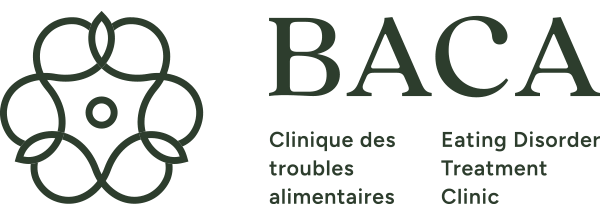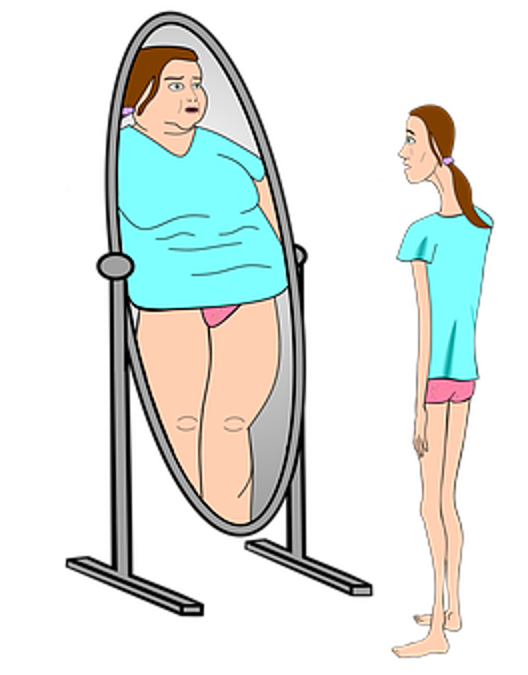Eating disorders are mental health conditions that involve an abnormal relationship with food. People with eating disorders may have a distorted view of their body weight and shape, which can lead them to adopt unhealthy eating habits.
Anorexia nervosa, bulimia nervosa, and binge eating disorder are the most common conditions under this category. However, there are other types of eating problems that affect people of all ages, genders, and backgrounds. All eating disorders can vary in intensity and severity.
If you think you have an eating disorder, it is essential to seek professional help as soon as possible. With treatment, most people with eating disorders can make a full recovery.
What Are the Symptoms of Anorexia Nervosa?
Anorexia nervosa is a disease in which individuals restrict food to lose weight. Individuals with anorexia nervosa may suffer from a persistent dread of gaining weight even when they are underweight.
The main symptoms of anorexia nervosa include:
- Intentionally losing weight by restricting food intake or cutting out entire food groups
- Having a distorted view of their body weight and shape which leads to a fear of gaining weight or becoming fat
- Having a low body weight and experiencing amenorrhea (loss of periods)
- Excessive exercise
- Anxiety or irritability along with poor concentration
- Fatigue due to insomnia and muscle weakness
- Constipation or bloating
- Dry skin, cold intolerance, low blood pressure, and anemia
- Irregular heart rhythms and possible multiorgan failure
People with anorexia nervosa often have a distorted view of their body weight and shape. This condition can have severe physical and psychological consequences.
What Are the Symptoms of Bulimia Nervosa?
Bulimia nervosa is an eating disorder that involves episodes of binge eating followed by purging. People who suffer from bulimia nervosa typically have a warped perspective on their body weight and form, which leads them to adopt unhealthy eating habits.
The main symptoms of bulimia nervosa include:
- Regularly consuming large amounts of food in a short space of time (bingeing), often in secret, and feeling out of control during this period
- Engaging in behaviors to prevent weight gain following a binge, such as self-induced vomiting (purging), excessive exercise, or misuse of laxatives or other medications (compensatory behaviors)
- Preoccupation with body weight, shape, and size, leads to an intense fear of gaining weight
- A feeling of being out of control around food
- Distorted perceptions of body weight and shape
Bulimia nervosa usually starts during adolescence or young adulthood, with onset most common between the ages of 16 and 24. It affects women more often than men, with a female-to-male ratio of about 4:1. The condition is found across all cultures but is most prevalent in developed countries.
Treatment for bulimia nervosa generally involves a combination of psychological and nutritional counselling and may also include medication. Sometimes, hospitalization may be necessary to ensure that the person with bulimia nervosa is eating enough to maintain healthy body weight.
What Are the Symptoms of Binge Eating Disorder?
This is an eating disorder that involves episodes of binge eating. People with binge eating disorders often have a distorted body image.
The main symptoms of binge eating disorder include:
- Feeling unable to control your eating
- Eating large amounts of food in a short period of time
- Feeling uncomfortably full or bloated
- Feeling guilty or ashamed after eating
- Eating when you are not physically hungry
Binge eating disorder is different from bulimia nervosa. People with bulimia nervosa generally maintain a normal or even healthy weight, while people with binge eating disorders are usually overweight or obese.
Other Feeding and Eating Disorders
Under this category are eating disorders or disturbances in eating behaviors caused by distress and affect family, social, and work functions. These disorders do not fit the above categories for various reasons. For example, the frequency of the behavior does not meet the diagnostic threshold (for bulimia /binge eating disorder) or the weighing criteria for anorexia nervosa.
Atypical Anorexia Nervosa
This disorder has all the features of anorexia nervosa but does not meet the weight criteria.
Anorexia Athletica
Also known as “Bigorexia” or “Reverse Anorexia”, this is a disorder that can affect both sexes but is more common in males. The individual is obsessed with becoming bigger and stronger through weightlifting, steroids, and other means, to the point where it interferes with their daily lives.
Anorexia Mirabilis
A psychiatric disorder characterized by self-starvation. It was more common in the Middle Ages when people would starve themselves as a religious penance or as a way to become closer to God.
Orthorexia Nervosa
A disorder characterized by an obsession with healthy eating. People with orthorexia are fixated on the quality of the food they eat, reaching a point where it interferes with their daily lives.
Body Dysmorphic Disorder (BDD)
A preoccupation with perceived flaws in one’s appearance is manifested in a mental illness. People who suffer from BDD are obsessed with their appearance, affecting their ability to function.
Pica
A disorder characterized by the persistent eating of non-food items such as dirt, paint, hair, or paper. Pica is most common in children but can also affect adults.
Rumination Disorder
A disorder characterized by the repeated regurgitation of food. Rumination disorder is most common in infants and young children.
What Are the Best Treatments for Eating Disorders?
Eating disorders are serious mental illnesses that can profoundly affect a person’s physical, emotional, and social well-being. If you or someone you care about is living with an eating disorder, it is vital to seek professional help.
There is no one-size-fits-all approach to treating eating disorders, but many effective evidence-based treatments are available. The type of treatment that is most appropriate will depend on the specific eating disorder and the individual’s needs.
Common types of treatment for eating disorders include:
Psychotherapy
This is a talking therapy that can help people understand their thoughts and feelings as well as develop healthier ways of coping with difficult situations. Several types of psychotherapy are effective in treating eating disorders, including cognitive behavioral therapy (CBT), interpersonal therapy (IPT), and family-based therapy (FBT).
Medication
In some cases, medication may be prescribed to help treat the symptoms of an eating disorder. For example, antidepressants may be recommended for people with bulimia nervosa who also experience depression or anxiety.
Nutritional Counseling
This involves working with a dietitian to develop a healthy eating plan and improve your relationship with food.
Hospitalization
In severe cases of anorexia nervosa, hospitalization may be necessary to provide intensive treatment and monitor your physical health.
Psychoeducation
Psychoeducation is a process whereby individuals with an eating disorder (or their loved ones) are educated about the condition. This may include information on the causes, symptoms, and treatment options available.
Psychoeducation has been found to be beneficial in several ways. It can help individuals understand their condition and feel more in control. It can also help reduce the stigma surrounding eating disorders and encourage individuals to seek treatment. Psychoeducation may be a helpful step in the recovery journey of someone struggling with an eating disorder.
Remember, treatment for eating disorders should always be sought from a qualified professional. Moreover, if you are seeking treatment for anorexia or bulimia, it is crucial to find a team of professionals who are experienced in treating this condition. Lastly, treatment should be tailored to your individual needs and aim to address all aspects of your illness, including the physical, emotional, and social aspects.
With the right treatment, recovery from an eating disorder is possible. If you are concerned about yourself or someone you know, do not hesitate to reach out for help. You are not alone in this struggle. Millions of people around the world are affected by eating disorders. You can overcome your disorder and live a healthy, happy life with the right support.
Worried that you might have an eating disorder? Contact us today to learn more about the treatment options we offer and how we can help you get on the path to recovery.
Royalty-free Images supplied from PixaBay as part of the SEO service from 3R

